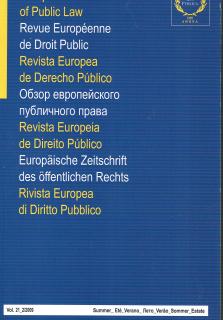
Constitutional Law / Droit constitutionnel
2008
Russia / Russie
PhD., Associate Professor of Constitutional and Administrative Law,
Law Faculty of St. Petersburg State University
The election of the President was the main event of 2008 in Russia. Dmitry Medvedev succeeded the most popular Russian politician, Vladimir Putin, as the Russian Constitution forbids one person to be elected President for more than two successive terms. Vladimir Putin rejected the possibility of amending the Constitution and became Chairman of the federal Government. All the candidates but one were nominated by a parliamentary party, which was privileged in the procedure of registration of candidates. Several non-parliamentary opposition candidates failed to overcome the bureaucratic procedures of nomination and registration. D. Medvedev got the support of 70,28% voters (turnout 69,7%). Various changes in the political and legal system of Russia took place following the elections. Russia began to move from a presidential to a semi-parliamentary form of government. The amendment of the Constitution (for the first time since its adoption in 1993) requires that the Government reports annually to the State Duma (the lower chamber of the federal parliament). The term of office for the President was increased from 4 to 6 years, and for the State Duma from 4 to 5 years. The 15th anniversary of the Constitution of 1993 was used as an occasion for looking back, to recollect the history of its adoption and to summarize the properties of the Constitution as well as the recent developments of the constitutional doctrine. In 2008, Russia maintained the leadership in the number of complaints to the European Court of Human Rights. Russia took the second position in the number of judgments which recognized violations of human rights. The “systemic problems” indicated by these judgments were the violation of reasonable terms in judicial trials and the non-execution of court decisions. Special attention was paid to these problems in the policy of the state. For instance, the Supreme Court of the Russian Federation initiated in 2008 a bill for state compensation of damages caused by unreasonable delays of trials and execution of judgments. The Constitutional Court of the Russian Federation, having moved in 2008 from Moscow to St. Petersburg, initiated both practical and doctrinal discussions on the problems of the execution of its decisions. Yet difficulties of implementation of the decisions are explained by their own substance.





















